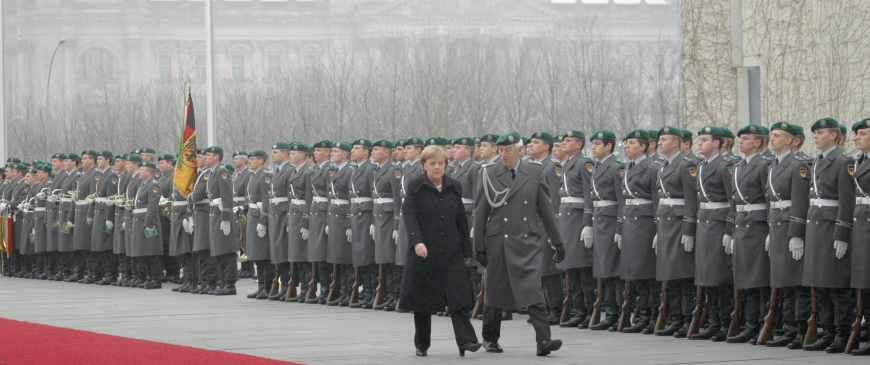
Why Germany must spend more on defence
Now that Germany has a new government, investing in defense and the transatlantic relationship has to be a priority for Angela Merkel.
The United States has long provided a security guarantee to Germany, both through NATO's solidarity clause and through the US protecting Germany's wider security interests, including freedom of navigation in the Gulf of Aden or the South China Sea or fighting ISIS.
This has made it possible in the past for Berlin to avoid facing difficult questions on the use of force. Germans like to think of themselves as pacifists. But being a pacifist country is easy when security is guaranteed by someone else. German pacifism has often served as camouflage for a reluctance to engage.
Today, German views toward America are shifting, particularly since Donald Trump became president. A survey by the Koerber Foundation in December shows Germans see him as a bigger challenge for German foreign policy than authoritarian leaders in North Korea, Russia or Turkey.
But while a growing number of Germans now say Germany should cooperate less with the US, about two-thirds are still confident the United States would come to their aid in any conflict with Russia. These views look increasingly incongruous.
Trump's posturing is undermining US influence on Germany even in areas where Berlin deserves criticism, like on defense spending, which in 2017, amounted to just 1.2 percent of gross domestic product. And while Germany has committed to raising its defense spending to NATO's target of 2 percent of GDP by 2024, this ambition has been met with considerable political resistance.
During last year's election campaign, the Social Democrats (SPD) criticized the target as kowtowing to Trump and promoting spending for spending's sake. But underinvestment in the armed forces has left Germany with major shortfalls in its capabilities.
The SPD and other left-wing parties in Germany have pushed the line that "for every euro spent on defense, one euro should be spent on development aid." Increasing Germany's development spending, which hit the UN target of 0.7 percent of gross national income last year, is laudable.
But linking development aid with defense investment won't allow Berlin to circumvent the sensitive debate on military spending forever. If Germany is to become less dependent on the US for security-- an objective outlined by then SPD Foreign Minister Sigmar Gabriel in a speech in December - more investment in defense is a requisite.
After months of political horse trading, Chancellor Angela Merkel's Christian Democratic Union (CDU) and sister party the Christian Socail Union are ready to form a new coalition with the SPD. There's a window of opportunity for the new government to take a new, more assertive approach to military and defense matters before things settle into familiar routines.
German politicians should be brave enough to make the case to the public for a stronger defense dimension to foreign policy. There is also a need for public debate on Germany's lucrative but controversial arms exports, its role in European nuclear deterrence, and Germany's responsibilities as a NATO member.
The US and the UK, two key anchors of the West's global political and economic order, are now retreating from Europe. Germany has to develop the strategic reach to help protect Europe's security and the global, rules-based economic order, and work toward adapting the transatlantic relationship to today's realities.
President Trump will not be in office forever, but his election does point to a broader change in America's approach to Europe. Germany and Europe continue to depend on the US for security, foreign policy leadership and management of the world economy. But Germany must also invest in Europe's ability to act. The transatlantic relationship can only be preserved if it is made more balanced by Germany and others investing more.
Sophia Besch is a research fellow at the Centre for European Reform.
